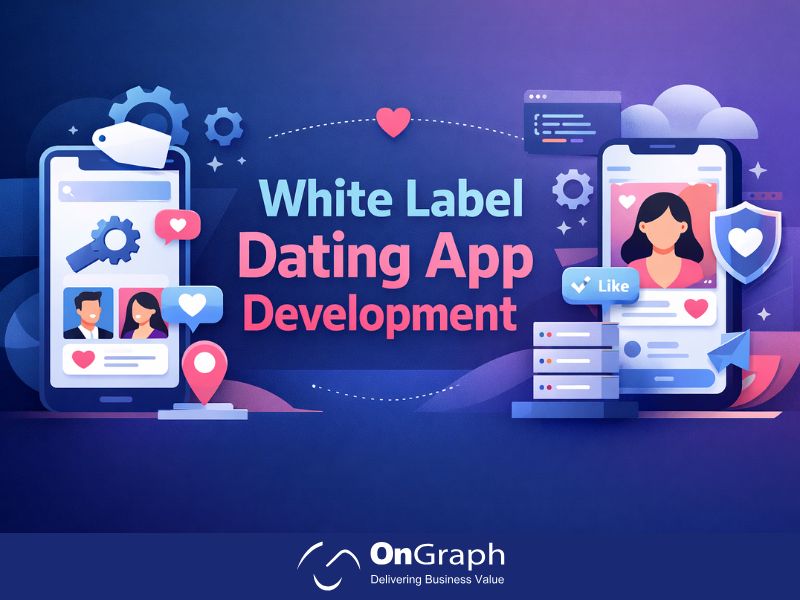In this article
- The Rise of White-Label SaaS: Market Trends & Stats
- What Is a White-Label SaaS Marketplace?
- Core Benefits of Launching a White-Label SaaS Platform
- Step-by-Step Guide to Launch Your White-Label SaaS Marketplace
- Case Study: How a Digital Agency 10x’ed Their Revenue with White-Label SaaS
- Final Thoughts: Is the White-Label SaaS Marketplace Right for You?
In today’s fast-evolving digital economy, building a White-Label SaaS Marketplace has become one of the most profitable opportunities for tech entrepreneurs, digital agencies, and software resellers. With demand for ready-to-use, customizable software growing across industries, launching your own branded SaaS marketplace offers recurring revenue, faster time-to-market, and scalability without the high development costs of building software from scratch.
In this guide, we’ll walk you through everything you need to know to launch a successful white label software as a service business, backed by data, real-world examples, and industry trends.
The Rise of White-Label SaaS: Market Trends & Stats
According to Gartner, the SaaS industry is expected to reach $232 billion by 2025. A growing slice of this market is powered by white label SaaS platforms, enabling resellers to brand, sell, and support SaaS products under their own label—without writing a single line of code.
- 63% of marketing and software agencies now use or offer white-label software.
- The global white label AI SaaS market is also rising, as generative AI tools become the foundation for CRMs, chatbots, analytics platforms, and more.
From CRM systems to AI chatbots, e-commerce tools, and automation platforms, entrepreneurs are increasingly turning to white label SaaS software to build marketplaces that scale.
What Is a White-Label SaaS Marketplace?
A White-Label SaaS Marketplace is a branded online platform where you offer multiple software solutions under your company name, but the core technology is developed and maintained by a third-party provider.
In this model:
- You buy or license ready-made white label SaaS products.
- You rebrand and price them.
- You resell them to your clients through a unified marketplace portal.
- You handle support, onboarding, and marketing, while the backend is managed by the provider.
This makes it ideal for agencies, IT consultants, startups, and even influencers looking to monetize their audience.
Core Benefits of Launching a White-Label SaaS Platform
Faster Go-To-Market
You can launch your platform in days or weeks instead of months or years—no need for development or QA cycles.
High Profit Margins
Most white label SaaS resellers enjoy margins between 50–80%, especially when selling niche tools or AI-based platforms.
Scalable Recurring Revenue
SaaS business models allow you to earn recurring monthly income with minimal churn if paired with good customer support.
Brand Authority
You’re not just selling someone else’s software—you’re offering your own branded solution, increasing trust and visibility.
Step-by-Step Guide to Launch Your White-Label SaaS Marketplace
Step 1: Identify a Niche or Target Audience
Start by narrowing your focus. Some examples include:
- Digital agencies needing marketing automation
- Healthcare clinics looking for appointment software
- Real estate brokers needing CRMs
- Fitness trainers looking for coaching platforms
Choose a vertical where you understand the problems and can offer valuable solutions.
Step 2: Choose the Best White Label SaaS Providers
Look for companies offering:
- Multi-tenant support (for multiple clients)
- AI capabilities (e.g., chatbots, analytics)
- White label dashboards and customizable branding
- Billing integrations (Stripe, PayPal)
- Marketing and onboarding resources
Popular examples:
- Vendasta – Ideal for digital marketing agencies
- GoHighLevel – CRM & funnel builder for coaches/marketers
- OnGraph – It is leading a white-label solution company offers AI-based white-label SaaS and product development for custom platforms
If you’re building a more advanced solution, consider a white label AI SaaS provider to offer smart automation, voice bots, or predictive analytics.
Step 3: Build Your Marketplace Portal
Use a white label SaaS platform or work with a development partner like OnGraph to create:
- Branded front-end with your logo, theme, and custom domain
- Tiered pricing models
- Client onboarding & dashboard
- Admin backend for user management and reports
- Integrated marketing tools (email/SMS/ads)
Pro Tip: Include explainer videos or demos for each software you offer. Make it easy for users to understand and try.
Step 4: Set Pricing and Subscription Models
- Offer monthly, annual, and lifetime plans.
- Create bundles for complementary tools (e.g., CRM + email automation).
- Provide free trials to increase conversions.
Most white label SaaS resellers start with 2–3 tiered packages based on features, support level, or number of users.
Step 5: Launch, Market & Scale
Marketing tips:
- Create blog content targeting terms like best white label saas, white label marketing tools, etc.
- Run paid ads targeting specific business niches.
- Offer free onboarding, templates, or bonus tools for referrals.
- Use LinkedIn, Reddit, and email marketing to reach early adopters.
Case Study: How a Digital Agency 10x’ed Their Revenue with White-Label SaaS
A small digital agency in the U.S., used to sell one-off website builds. In 2022, they partnered with OnGraph to offer:
- CRM
- Social media scheduler
- Landing page builder
- Email automation
Within 6 months:
- Monthly revenue increased from $12K to $80K
- Churn dropped by 50%
- They expanded to 4 full-time sales reps and launched a partner program
The key? They packaged tools under their own brand and focused on real estate and coaching clients, becoming the go-to software vendor in their niche.
Final Thoughts: Is the White-Label SaaS Marketplace Right for You?
If you’re an entrepreneur looking to build a scalable, low-maintenance tech business, a white-label SaaS marketplace offers an incredible opportunity. With the right niche, platform, and marketing strategy, you can launch in weeks and start generating recurring revenue with minimal overhead.
Whether you want to target local businesses, digital creators, or global enterprises, you can build your own branded SaaS empire—without writing code.
FAQs
A White-Label SaaS Marketplace is a branded platform where entrepreneurs or agencies resell third-party SaaS products under their own company name. Instead of building the software from scratch, you license existing solutions, apply your branding, and offer them as your own through a marketplace. This model allows you to generate recurring revenue, launch quickly, and focus on sales and customer support.
You can sell a wide variety of white label SaaS products, such as:
- CRM and sales automation tools
- AI-powered chatbots and analytics
- Email and SMS marketing platforms
- Online booking systems
- Social media schedulers
- E-commerce management platforms
- Helpdesk and customer support software
Some platforms even support white label AI SaaS for more advanced features like predictive analytics, AI voice agents, and workflow automation.
Anyone looking to build a scalable digital business should consider it, especially:
- Marketing agencies (offering software bundles to clients)
- Freelancers and consultants (adding recurring revenue streams)
- Influencers or community leaders (monetizing audiences)
- Tech entrepreneurs and startups (validating ideas without dev costs)
The best white label SaaS marketplaces often emerge from niches like healthcare, coaching, real estate, and small business services.
When choosing providers for your white label SaaS marketplace, look for:
- Multi-tenant architecture
- Easy rebranding and dashboard customization
- Transparent reseller pricing and profit margins
- Integrated billing and analytics
- AI capabilities (if needed)
Platforms like Vendasta, GoHighLevel, and OnGraph offer robust white-label software as a service solutions depending on your industry and feature requirements.
Costs can vary depending on your provider and the number of tools you offer. Most white label SaaS platforms charge:
- A monthly platform fee (starting around $99–$499/month)
- Per-client or per-product licensing fees
- Optional custom development (if needed)
However, you avoid the high costs of development, hosting, and ongoing updates—making this a highly cost-effective model for resellers.
Here are proven strategies to market and scale your white label SaaS reseller business:
- Target niche-specific keywords via SEO (e.g., “CRM for coaches” or “booking app for salons”)
- Run LinkedIn and Google Ads focused on pain points your tools solve
- Use content marketing, email outreach, and free trials
- Offer affiliate/referral programs to grow virally
- Create demo videos and comparison charts to convert hesitant users
Consistent marketing, customer onboarding support, and value-packed packages will help you retain users and grow MRR (Monthly Recurring Revenue).
About the Author
Let’s Create Something Great Together!
Latest Blog
















